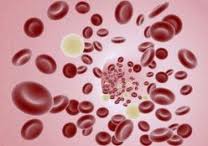Anemia is a condition wherein your body lacks a sufficient amount of red blood cells, which carry oxygen to the different parts of your body. As you may know, a consistent supply of oxygenated blood is necessary for the organ systems to function very well.  With the presence of anemia, your body doesn’t function optimally. There are many types of anemia. One of the most tackled one is B12 deficiency anemia. This type of anemia is also referred to as macrocytic anemia, which is basically a decrease in the number of red blood cells because of the lack of vitamin B12.
Vitamin B12 or cyanocobalamin is responsible for the optimal functioning of the nervous system and the brain. This is also important in the formation of blood. The intrinsic factor from the cells of the stomach, combine with vitamin b12 to be absorbed at the end part of the small intestine. The intrinsic factor allows the absorption of vitamin b12 in the small intestine so that it could be used by the body. Â Â Here are some facts about B12 deficiency anemia that you may be interested about:
1. Causes
 Vitamin B12 deficiency anemia is caused by very poor diet during infancy, lack of nutrition in pregnancy, and staying on a vegetarian diet. Important sources of vitamin B12 are dairy, shellfish, eggs, poultry, and meat. So if you really are very devoted to being a strict vegetarian all your life, you are at a very high risk of developing B12 deficiency anemia. Also, other conditions could contribute to B12 deficiency anemia such as Celiac disease, Crohn’s disease, chronic alcoholism, pernicious anemia, prolonged antacid or heartburn medicine intake, and surgeries like bariatric surgery. Pernicious anemia is a condition wherein the intrinsic factor is destroyed. If the intrinsic factor is gone, nothing will help the vitamin B12 to he absorbed in the small intestine, thus, making your body deficient in the said nutrient.
Vitamin B12 deficiency anemia is caused by very poor diet during infancy, lack of nutrition in pregnancy, and staying on a vegetarian diet. Important sources of vitamin B12 are dairy, shellfish, eggs, poultry, and meat. So if you really are very devoted to being a strict vegetarian all your life, you are at a very high risk of developing B12 deficiency anemia. Also, other conditions could contribute to B12 deficiency anemia such as Celiac disease, Crohn’s disease, chronic alcoholism, pernicious anemia, prolonged antacid or heartburn medicine intake, and surgeries like bariatric surgery. Pernicious anemia is a condition wherein the intrinsic factor is destroyed. If the intrinsic factor is gone, nothing will help the vitamin B12 to he absorbed in the small intestine, thus, making your body deficient in the said nutrient.
2. Symptoms
 Those who suffer from very mild B12 deficiency anemia manifest no symptoms at all. But those who have B12 deficiency anemia have pale skin, appetite loss, fatigue, constipation (or diarrhea), difficulty in tackling with problems, shortness of breath, bleeding gums, and red-colored, swollen tongue. If the person has already suffered from B12 deficiency anemia for a very long period of time, depression, imbalance, dementia, confusion, and the tingling sensation and numbness of the feet and hands may be evident already.
Those who suffer from very mild B12 deficiency anemia manifest no symptoms at all. But those who have B12 deficiency anemia have pale skin, appetite loss, fatigue, constipation (or diarrhea), difficulty in tackling with problems, shortness of breath, bleeding gums, and red-colored, swollen tongue. If the person has already suffered from B12 deficiency anemia for a very long period of time, depression, imbalance, dementia, confusion, and the tingling sensation and numbness of the feet and hands may be evident already.
3. Diagnostic tests
 If the person has B12 deficiency anemia, then the Babinski reflex test should be positive. Other important tests that the patient will undergo are reticulocyte count, complete blood count, serum LDH, serum B12 level test, esophagogastroduodenoscopy or EGD, enteroscopy, bone marrow biopsy, serum folate level test, and if suspected with pernicious anemia, the Schilling test will then be performed.
If the person has B12 deficiency anemia, then the Babinski reflex test should be positive. Other important tests that the patient will undergo are reticulocyte count, complete blood count, serum LDH, serum B12 level test, esophagogastroduodenoscopy or EGD, enteroscopy, bone marrow biopsy, serum folate level test, and if suspected with pernicious anemia, the Schilling test will then be performed.
4. Treatments available
 Treating B12 deficiency anemia actually depends of what is causing the said condition. If the patient is suffering from pernicious anemia, there will be vitamin B12 replacement therapy for as long as the patient lives. Injections of vitamin B12 will be given. High-dosage tablets of vitamin B12 could be given orally for proper supplementation. If the patient is just deficient of vitamin B12, supplementation (starting with B12 injections), a more balanced diet, and a change in lifestyle are recommended. If there is poor absorption and digestion, vitamin B12 injections could be given while the condition is being corrected. Dosage shots are given every single day, transitioned to every week, and then every month. If he underlying conditions (alcoholism, celiac disease, and Crohn’s disease) are already properly treated, the patient may not have to take the B12 shots for the rest of his or her life.
Treating B12 deficiency anemia actually depends of what is causing the said condition. If the patient is suffering from pernicious anemia, there will be vitamin B12 replacement therapy for as long as the patient lives. Injections of vitamin B12 will be given. High-dosage tablets of vitamin B12 could be given orally for proper supplementation. If the patient is just deficient of vitamin B12, supplementation (starting with B12 injections), a more balanced diet, and a change in lifestyle are recommended. If there is poor absorption and digestion, vitamin B12 injections could be given while the condition is being corrected. Dosage shots are given every single day, transitioned to every week, and then every month. If he underlying conditions (alcoholism, celiac disease, and Crohn’s disease) are already properly treated, the patient may not have to take the B12 shots for the rest of his or her life.
5. Additional information
 The established treatments for B12 deficiency anemia are very effective. The symptoms of B12 deficiency anemia should be immediately treated within 6 months to prevent permanent nerve damage. If this condition is not treated, a false-abnormal Pap smear result may happen.
The established treatments for B12 deficiency anemia are very effective. The symptoms of B12 deficiency anemia should be immediately treated within 6 months to prevent permanent nerve damage. If this condition is not treated, a false-abnormal Pap smear result may happen.
You should always remember to consult your physician if there are any symptoms related to anemia. This helps in the early diagnosis of the B12 deficiency anemia if it is the condition that you have. As you may know, early diagnosis results to early treatment that will prevent the patient from suffering from complications brought about by the condition. Always take note that prevention is really better than cure so you must make sure that you have a healthy lifestyle and a balanced diet. If you are going to undergo a surgery in your GIT, have B12 injections to compensate during the healing process.
